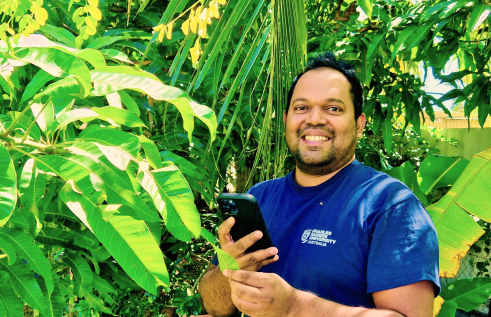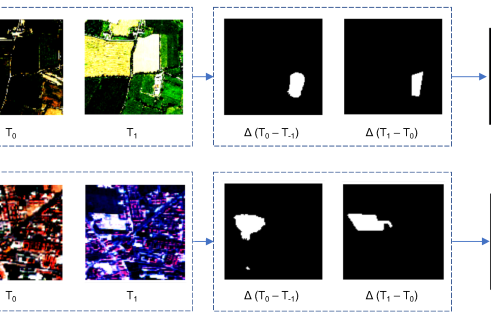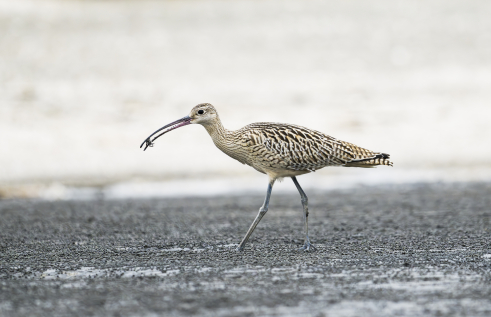News
New CDU and RMIT joint facility to drive development of the aerospace industry in Northern Australia
Charles Darwin University (CDU) will house an advanced manufacturing and test flight facility for the development of drones, as well as broader aerospace and defence industry parts.
The CDU-RMIT TestLab is a joint investment from the Federal Government, the Northern Territory Government and CDU, each contributing $1 million to the project, which will drive workforce transformation in Northern Australia.
CDU will partner with RMIT University, which will offer its knowledge in the aerospace and defence industry, and Siemens which will provide high-tech software used by leading aerospace, defence and other industries worldwide.
The facility will be located at CDU’s Casuarina campus and will adopt and showcase Industry 4.0 practices and technologies. Industry 4.0 is the digitisation of the manufacturing process and is significantly transforming the way we innovate high-tech products.
CDU Vice-Chancellor Professor Scott Bowman AO said the TestLab project would showcase CDU’s strengths to support the advanced manufacturing and strategic priorities for Northern Australia.
“The establishment of the TestLab with RMIT is a tremendous opportunity for us to combine our expertise and facilities to strengthen the Australian aerospace and defence industry,” Professor Bowman said.
“Hosting a TestLab means we have first-hand access to sophisticated facilities that allow the advanced manufacturing of aerospace and other uncrewed autonomous technologies.”
Minister for Education Jason Clare said the Testlab will encourage university and industry collaboration and help keep Australia at the forefront of technological advancements in Industry 4.0, or the fourth industrial revolution.
“The project will strengthen the links between defence and aerospace industries and CDU and contribute to work by the NT Government to strengthen digital infrastructure in Darwin,” Minister Clare said.
“Once established, the Testlab will support advancements in the manufacture of remotely piloted aircraft as well as incorporate AI-assisted virtual planning, production, manufacture and maintenance to accelerate product quality and efficiency.”
Chief Minister of the Northern Territory Natasha Fyles said the CDU Testlab would be a significant boost to Darwin and the Northern Territory, while also creating new educational pathways and skills relevant to defence and aerospace industries.
“The establishment of an Industry 4.0 Testlab at CDU will be an exciting and welcome addition to the Northern Territory, and gives new and exciting opportunities for our students,” Minister Fyles said.
“We are launching rockets from Arnhem Land, and building the world’s biggest solar farm in the Barkly. The addition of this new technology is the first of its kind for the NT and will build upon our advanced manufacturing capacity and strengthen Australia's defence and aerospace research capability in the region.”
Australian Industry 4.0 TestLabs network Chair and former Deputy Vice-Chancellor STEM College and Vice-President Digital Innovation RMIT University, Professor Aleks Subic, said that both universities brought strong capabilities in technology innovation for the aerospace, defence and space sectors.
“RMIT has been a partner of Australia’s defence and aerospace sectors for around 100 years and this announcement marks an important milestone in the transformation of Australia’s aerospace and aviation industry,” Professor Subic said.
“RMIT and Charles Darwin University will bring the right expertise and collaborative approach to developing relevant technological solutions and workforce transformations that grow local industry.”
Director of the North Australia Centre for Autonomous Systems at CDU, Professor Hamish Campbell said the project would attract innovative new businesses to the Territory.
“We are seeking local businesses or interstate businesses wishing to relocate operations to Darwin to partner with the TestLab,” Professor Campbell said.
“This is an exciting opportunity for Territorians wishing to pursue a career within the rapidly-growing drone industry.”
Siemens Software Australia Vice President and Managing Director Samantha Murray welcomed the collaboration and said it is critical to prepare future workforces.
“The pathway to Industry 4.0 centres on the optimisation of opportunities presented by digitalisation and the defence industry is a leader when it comes to product ideation and creation,” Ms Murray said.
“We’re proud to partner with CDU and RMIT to bring students closer to the same high-tech software being used by leading aerospace, defence and other industries worldwide, giving them the opportunity to stretch the boundaries of product innovation.”
A range of training programs will be introduced to support Australia’s Uncrewed Autonomous Systems as well as a new Higher Diploma in Advanced Manufacturing, which is being fully funded by the Federal Government, and open to enrolment later this year.
Construction of the TestLab will begin in July in anticipation for a late 2022 opening.
Related Articles

Rooting out plant diseases: Are computers ready to run our farms?
Nature is still too complex for artificial intelligence (AI) modelling to be effective, but the tipping point is close, according to a new study that found the technology may still trip at the last real-world hurdle.
Read more about Rooting out plant diseases: Are computers ready to run our farms?
Tech on the treetops: How AI can protect forests
The Artificial Intelligence model was developed to detect changes in forest cover.
Read more about Tech on the treetops: How AI can protect forests
Volunteers protected Darwin wildlife for 50+ years, but new research suggests it’s time to stop winging conservation efforts
Volunteers have shouldered the burden of shorebird conservation in the Top End for more than half a century, but new research from Charles Darwin University (CDU) suggests it’s time for the government to take responsibility for all of the Northern Territory’s residents – including those with wings.
Read more about Volunteers protected Darwin wildlife for 50+ years, but new research suggests it’s time to stop winging conservation efforts